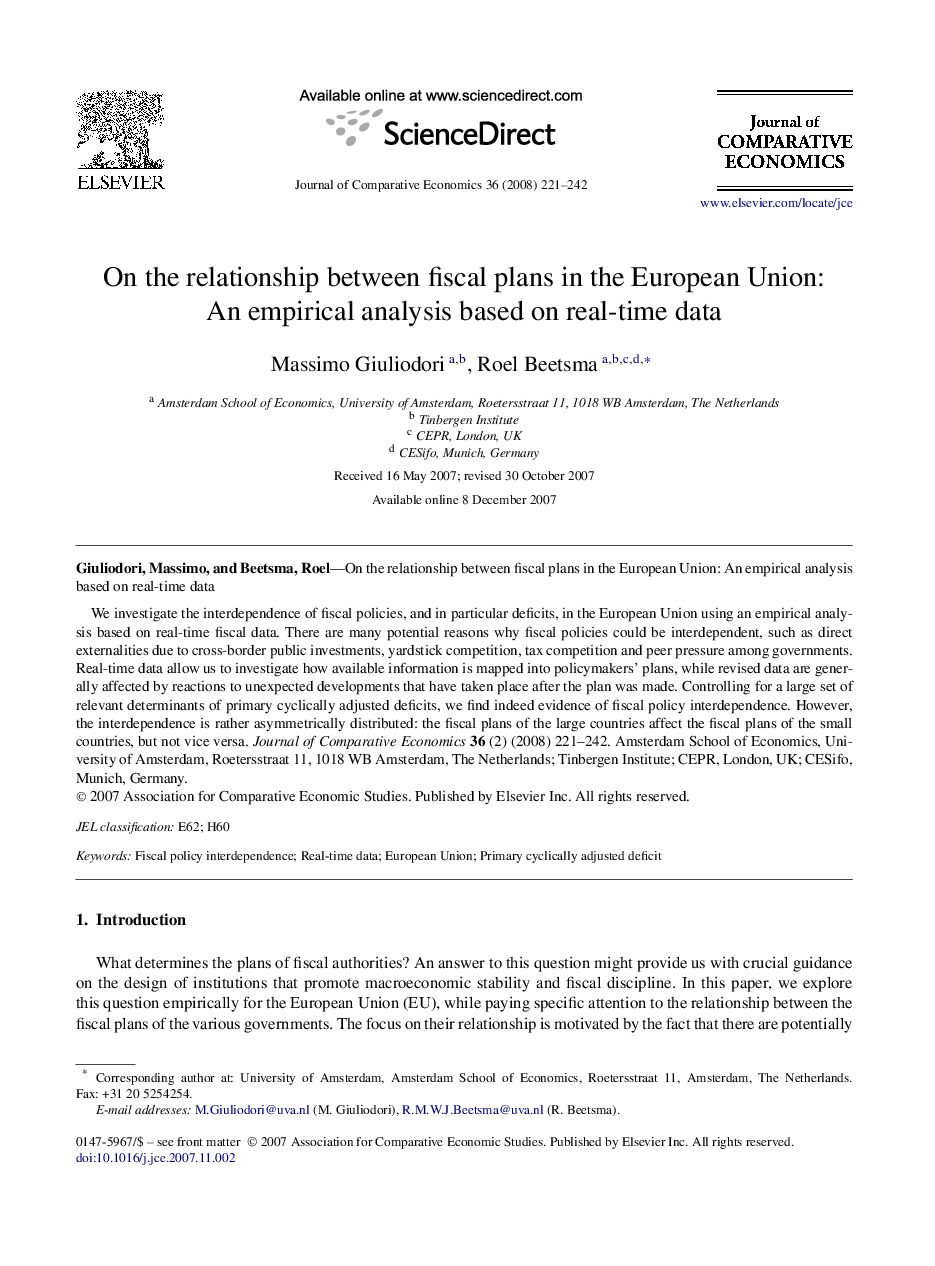| Article ID | Journal | Published Year | Pages | File Type |
|---|---|---|---|---|
| 5092517 | Journal of Comparative Economics | 2008 | 22 Pages |
Abstract
We investigate the interdependence of fiscal policies, and in particular deficits, in the European Union using an empirical analysis based on real-time fiscal data. There are many potential reasons why fiscal policies could be interdependent, such as direct externalities due to cross-border public investments, yardstick competition, tax competition and peer pressure among governments. Real-time data allow us to investigate how available information is mapped into policymakers' plans, while revised data are generally affected by reactions to unexpected developments that have taken place after the plan was made. Controlling for a large set of relevant determinants of primary cyclically adjusted deficits, we find indeed evidence of fiscal policy interdependence. However, the interdependence is rather asymmetrically distributed: the fiscal plans of the large countries affect the fiscal plans of the small countries, but not vice versa. Journal of Comparative Economics 36 (2) (2008) 221-242.
Keywords
Related Topics
Social Sciences and Humanities
Economics, Econometrics and Finance
Economics and Econometrics
Authors
Massimo Giuliodori, Roel Beetsma,
